
A virtual Convocation for Penn’s newest students
Defined by their mission-driven grit and unity as a community, the Class of 2024 is welcomed with open arms—and inspired to ‘make the impossible possible’—during such an unprecedented time.

Defined by their mission-driven grit and unity as a community, the Class of 2024 is welcomed with open arms—and inspired to ‘make the impossible possible’—during such an unprecedented time.
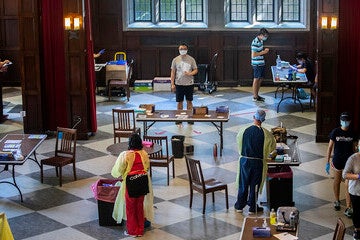
The University launched “gateway testing” for COVID-19 in Houston Hall’s Hall of Flags. All students, especially those who will be on campus regularly, are encouraged to schedule an appointment. “We are encouraging testing as an overall public health approach to addressing coronavirus on campus,” says Chief Wellness Office Benoit Dubé.

In a Q&A, Gary Purpura, executive director of education and academic planning in the Office of the Provost, explained the Student Campus Compact designed for those returning to campus for the fall semester. “We’re really hoping the students understand what these expectations are and recognize them as necessary,” he says. “They equally apply to me as the students or anyone else in the community.”
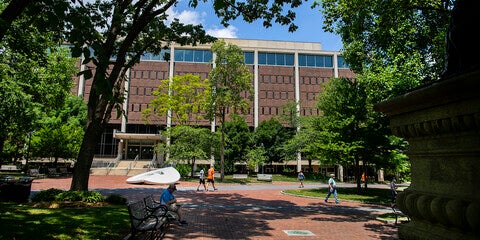
Penn began a comprehensive survey of public safety on campus with a series of virtual hearings. The Initiative intends to assess Penn’s success in creating a physically and emotionally safe environment on campus and in the surrounding community, while treating every person with dignity and respect, and in a way that prioritizes and promotes antiracism, racial equality, and justice.
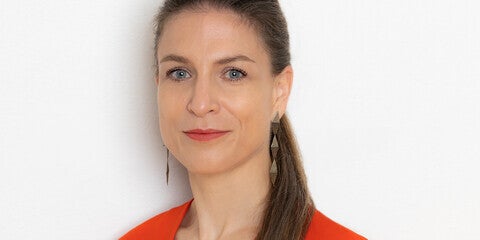
Provost Wendell Pritchett announced Zoë Ryan as the new Daniel W. Deitrich, II Director of the Institute of Contemporary Art, starting Nov. 5. Ryan is currently the John H. Bryan Chair and Curator of Architecture and Design at the Art Institute of Chicago.

In the Los Angeles Times, the School of Social Policy & Practice’s Dennis P. Culhane was quoted about the relatively low infection rate among the California city’s homeless population. “It’s possible being outside is protective relative to inside,” he says, but adds that until there is comprehensive antibody testing he is “not so sure we can say there hasn’t been a huge hit.”

The Division of the Vice Provost for University Life, the Office of Student Affairs, the Center for Undergraduate Research and Fellowships, and the College Houses have collaborated to design new ways for student groups and cohorts to connect online and hold virtual events. The platform, Campus Groups, allows all events to be in one place; students can filter events, learn more about organizations, and join any event.
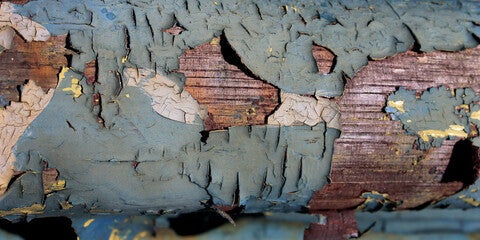
Richard Pepino teaches the Academically Based Community Service (ABCS) course “Urban Environments: Speaking Out About Lead in West Philadelphia“, raising awareness about lead toxicity in Philadelphia. Philadelphia’s children are twice as likely to have high blood levels as the national average. This is the 13th time he has taught the course and the first since Philadelphia passed a policy ensuring every rental property in the city is certified lead-safe or -free—a policy influenced by Pepino and others.
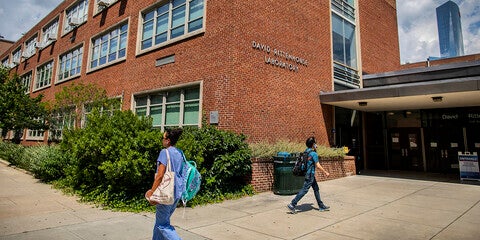
Phase II of a three-part reopening began in July. In a Q&A, Vice Provost for Research Dawn Bonnell discusses lessons learned from Phase I and how they’ve influenced Phase II.
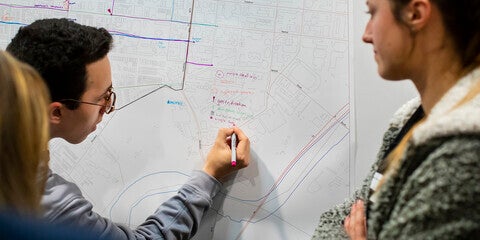
As the COVID-19 pandemic and reckoning with system racism continue, maps have been a focal point of news stories. Penn faculty and staff remark on the making of maps and their usefulness for both policymaking and public understanding in this time.
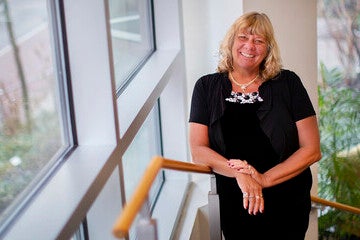
In Vogue, Diane Spatz of the School of Nursing addresses the ongoing difficulties new mothers are having in accessing information critical to breastfeeding. The pandemic has allowed for a shortage of staff and resources. “You have a very short window of time to establish lactation,” she says. “Without support to get started a few hours post-delivery, it’s a very quick downward spiral.”
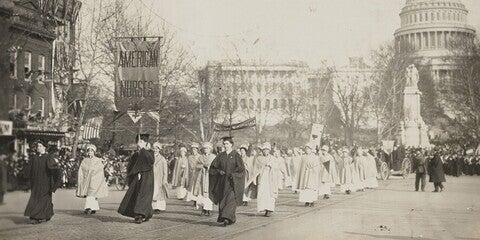
Experts from centers and schools across the University reflect on the 100th anniversary of the 19th Amendment. “Although 1920 marks an important moment, it is only one date in what feminist Juliet Mitchell called “the longest revolution,’” says Kathy Peiss of the School of Arts & Sciences. “The commemorations are a call to action toward a more inclusive vision of women’s emancipation.”
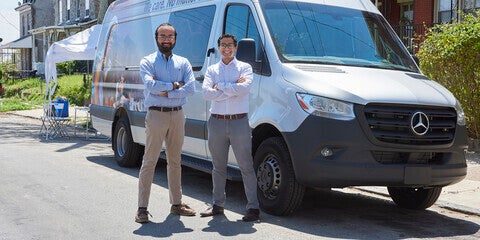
Santosh Nori and Jay Shah, 2019 alumni and President’s Engagement Prize finalists, launched a mobile clinic this spring that brings medical care directly to homeless and food-insecure shelters in Philadelphia. Kent Bream of the Perelman School of Medicine, who served as their mentor, described them as tenacious. “I was impressed by their recognition during COVID that even though it was happening and shutting things down, the homeless population still needed care, and they doubled down,” says Bream.

Andrew Arenge, director of operations for Penn’s Program on Opinion Research and Election Studies, is studying how the presidential campaigns have adapted during the pandemic. Largely, he says, they’ve dramatically increased social media advertising and digital marketing at-large.
Vasu Renganathan of the School of Arts & Sciences was quoted in the Washington Post about Kamala Harris’ use of the Tamil language in her convention acceptance speech—particularly “chittis,” a term of endearment that loosely translates to “auntie.”